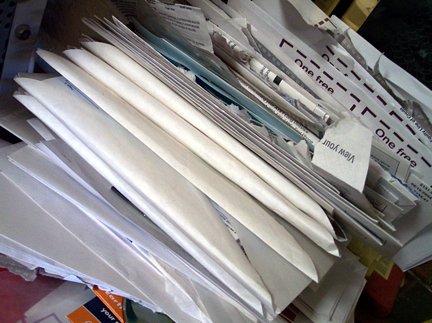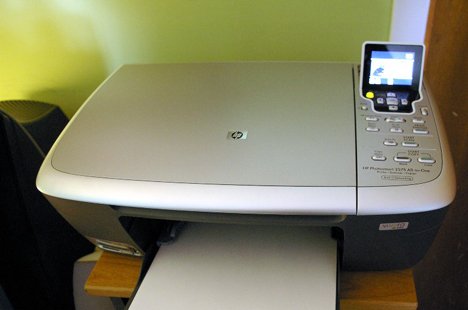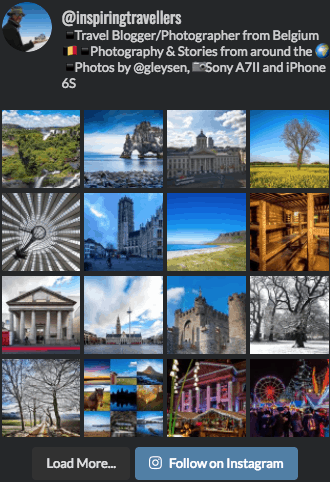I try not to get too paranoid when travelling. After all, many of the things people worry about could just as easily happen in their home cities as they could while on the road. We’re travelling for over a year, however, and have decided to take some preventative measures that will at least make us feel a little safer out there in the big wide world.
1. A watchful eye: My mother-in-law has tips for us every time we speak to her lately: be sure to pack enough warm clothing, drink plenty of water, be very careful, etc. As if we aren’t in our thirties, have lived on our own for a long time and know this stuff (I love you, Mum, just saying!) But we do have some tasks for her while we’re away that really will be helpful. We’re sending her our itinerary and a list of all our social media profiles and websites so she can see where our updates are. We’ll use Skype and email to communicate, but she’ll also be able to see if we don’t post anywhere for several days and there’s not a good reason for it. This is for her peace of mind as well as our own – it is nice to have someone keeping an eye on your movements while you’re travelling. I’ll also be sending her a list by registered mail of all our credit card and bank account details. If we were to go missing, it is good to have these in one place for the authorities to track any activity on our accounts.
2. Mail: I remember mail forwarding being free in the United States. In Australia we’re not so lucky, but even so we’re paying to have our mail sent on to Mum for 12 months (the longest time available). We don’t receive much because we view and pay most of our bills online, but envelopes do arrive now and again that contain a surprising number of details you wouldn’t want a stranger getting their hands on. Since we’re vacating a rental unit, it makes sense to have the mail forwarded. With the prevalence of identity theft and fraud, you can never be too careful. If you don’t have or trust a family member to look after your mail, you can hire one of the many available mail services to receive, scan and/or forward your mail on to you wherever you are in the world.

Use pre-paid credit cards in the local currency to avoid hefty conversion fees and protect your money while travelling. Photo by nacu of morgueFile.
3. Safety deposit box: We’re storing the belongings we haven’t sold, however, it’s not a good idea to keep valuables in a self-storage unit. All of our important documents, bank cards we’re leaving behind (which is most of them – see next point), etc. will be stashed there while we’re away. It isn’t as expensive as you may think: we have a medium-sized box that costs us about A$140 a year and smaller/cheaper ones are available. Ask your bank if they have a facility. Another job for Mum: holding the key until we return.
4. The Right Credit Cards: These days it is possible to find credit cards with features like no withdrawl fees from overseas ATMs and you should explore these options before settling for your current card’s exchange rate and fee structure. Be sure to let your card issuer know where you’re headed so you don’t get bothered with holds on your account.
5. Documents: We’ve scanned our passports and Yellow Fever Vaccination booklets into PDF format and stashed those electronically in a few places we can get to them. We’ll also be carrying a photocopy of each one with us because some hotels hold on to your passport when you check in.
I’ve also heard that you should never, ever take your passport out with you in South America, but you do need a form of identification on your person at all times. So we’ll carry our drivers’ licences and the photocopies around instead. We also have electronic copies of other documents we might need such as receipts for our equipment (for insurance purposes), our flight details, booking confirmations, etc. handy in case we need those.
6. Passwords and PINs: We’ve memorized every one of these and wouldn’t dream of carrying them on a piece of paper anywhere on us (not even in a separate bag or secret compartment). You shouldn’t either.
7. Registering with your government: We’re using the Australian Government’s travel advisory service at Smarttraveller.gov.au to register all of our known destinations and timeframes with the Australian Government. This may sound silly, but in case of a disaster, emergency, civil unrest or other scenario, the nearest Australian Embassy will be able to make contact with us and our family and provide assistance should we need it. They can’t do this if they don’t know we’re there. Does your government offer a similar service? If it does, I strongly suggest you register, especially if travelling in an area prone to such occurrences.
What preventative security measures do you take before taking off? Please share your tips below.


